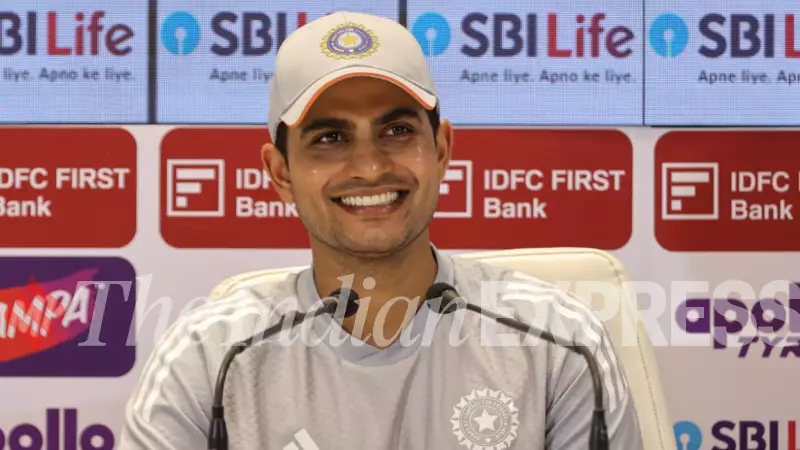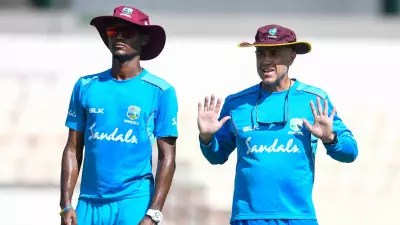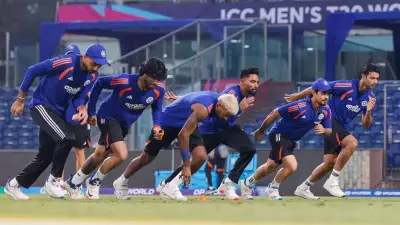
The Unrelenting Cricket Calendar: Gill's Global Odyssey
Indian cricket captain Shubman Gill finds himself in a constant battle against time and fatigue as he navigates one of the most demanding schedules in international cricket. The 26-year-old skipper has been living out of a suitcase, traveling across continents and switching between cricket formats with barely enough time to catch his breath.
Since taking over leadership responsibilities, Gill's concept of 'home' has transformed into hotel rooms and airport lounges. His remarkable journey began with the England series that stretched from June to August, immediately followed by his appointment as deputy captain for the Asia Cup in UAE from September 9-28.
The Relentless Schedule: Numbers Don't Lie
The statistics reveal a staggering workload that would test any athlete's limits. In just six months, Gill has played 7 Tests, 12 T20Is, and 3 ODI matches, accumulating nearly 48 days of active match time since the IPL concluded. The West Indies series from October 2-14 was immediately followed by a white-ball tour to Australia featuring 3 ODIs and 5 T20Is from October 19 to November 8.
With the South Africa series commencing on November 14, Gill faces yet another challenge with minimal recovery time. The physical demands are substantial, but as Gill revealed in his pre-match press conference at Eden Gardens, the mental aspect presents the greater obstacle.
Mental Battles Outweigh Physical Strain
"I think in 4-5 days' of turnaround, coming from another country and playing different formats is not easy. It's mentally more challenging," Gill confessed. The rapid transitions between time zones and playing conditions have forced the young captain to constantly adapt his mindset and approach.
He elaborated on the specific difficulties, noting that "the body takes a bit of time to get used to it" when moving between countries with significant time differences. The shift from white-ball cricket in Australia to Test cricket in India requires completely different mental preparations and technical adjustments.
Despite the challenges, Gill remains physically robust. "Bodily, I feel fine. There's obviously a little bit of jet lag when you are coming from Australia. Apart from that, physically I feel completely fine," he assured.
Captaincy Brings New Responsibilities
The workload has intensified significantly since Gill assumed captaincy duties across formats. Previously, he primarily featured in ODIs and Tests with occasional T20I appearances. However, his increased involvement in the T20I setup suggests India is grooming him for full-time leadership across all formats once current skipper Suryakumar Yadav steps aside.
Gill admitted he's still learning to manage the unprecedented demands. "I am still trying to figure out how to manage it. I think the workload, starting from the Asia Cup, we have been playing kind of back-to-back, travelling to different countries," he shared.
The young leader is actively seeking solutions, explaining that "I am also trying to figure out what gives me the best chance to be able to perform and succeed in all those formats that I am going to play."
Eden Gardens: A Familiar Sanctuary
Amidst the global cricket circus, Eden Gardens provides a rare moment of familiarity for Gill. The iconic stadium holds special significance from his formative years with Kolkata Knight Riders in the 2018 IPL, following his successful U-19 World Cup campaign that same year.
Gill described feeling at home at the historic venue, though the irony isn't lost on him that his actual home has become increasingly elusive due to his packed schedule.
As Indian cricket contemplates an all-format captaincy model, managing Gill's workload emerges as the organization's most pressing challenge. The physical demands, while substantial, appear manageable for the fit 26-year-old. However, preserving his mental freshness will be crucial for both his personal performance and India's success across formats.
Gill approaches these challenges with characteristic professionalism, viewing them as "a good challenge and a good learning curve" in his evolving career. How he adapts to these relentless demands will likely define not just his captaincy tenure but also set precedents for how modern cricketers manage their careers in an increasingly crowded international calendar.






